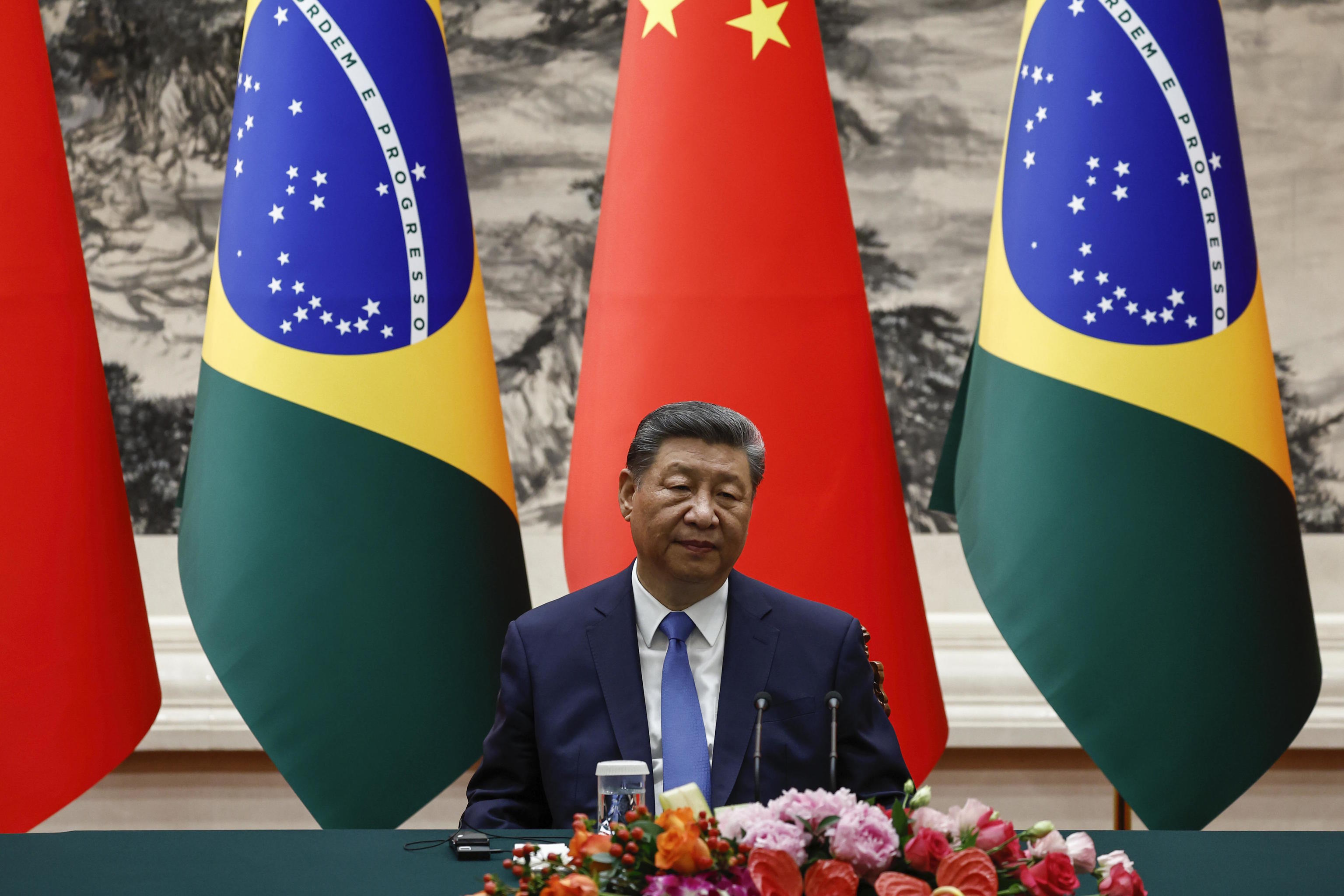During the week in which China boasts of having achieved that Donald Trump backed down in his trade war after reaching an agreement to suspend most tariffs, Xi Jinping flexed his diplomatic muscles by receiving Latin American leaders and high officials from a region where Beijing has been extending its influence for years through significant investments.
The leaders of the three largest economies in Latin America traveled to Beijing to participate on Tuesday in a summit with the Asian giant. In the first major diplomatic event organized by the Chinese government since Donald Trump's return to the White House, Brazilian Lula da Silva was present, accompanied by 11 of his ministers and 150 prominent Brazilian entrepreneurs. Also in the Chinese capital were Chilean Gabriel Boric and Colombian Gustavo Petro. The latter, before diving into meetings, took a stroll along a section of the Great Wall.
Xi opened the China-CELAC forum (Community of Latin American and Caribbean States) with his first public statements since the trade truce reached with Washington. "There were no winners in trade wars, but intimidation or anxiety for hegemony only leads to isolationism," he stated in a clear message directed at the Trump administration.
The Chinese president delivered his speech in front of an audience that also included Foreign Ministers from countries like Peru, Cuba, or Venezuela. Xi emphasized the importance of Latin American and Caribbean nations remaining united as key members of the Global South to avoid what he described as "growing undercurrents of unilateralism and protectionism."
Among the most significant announcements made by Xi is the commitment to provide 66,000 million yuan (around 8,000 million euros) in credit funds to the region. "We will work with the countries of Latin America and the Caribbean to firmly safeguard the international system and speak with one voice on international and regional issues," he concluded.
In 2000, the Chinese market represented less than 2% of Latin America's exports. Now, China is South America's main trading partner and the second most important for Latin America as a whole, after the United States (bilateral trade has increased from 18 billion dollars to 450 billion dollars in 20 years). The Asian country has free trade agreements with five nations and over twenty projects underway under Beijing's ambitious infrastructure plan, the new Silk Road, which has been joined by around twenty countries in the region.
Xi personally sponsored a mega port in the Peruvian city of Chancay at the end of last year, built thanks to Chinese investment. The leader of the Asian superpower described it as a new maritime corridor with China that would bring prosperity to the entire region through boosted bilateral trade. The next Chinese project underway is to connect by railway the Peruvian port with Brazil's Atlantic coast, although there is controversy surrounding this project as the nearly 4,000-kilometer route would pass through indigenous lands in the Amazon.
The train connection between Brazil and the Chinese port in Peru was one of the agreements discussed by Xi on Tuesday with Brazilian Lula da Silva, with whom he met behind closed doors after the summit to sign several bilateral cooperation agreements in key sectors such as artificial intelligence or space exploration. "China has often been treated as if it were an enemy of global trade when in reality it is behaving as an example of a country trying to do business with other nations that, for the past 30 years, have been overlooked by many others," stated Lula, who, after the meeting, defended that both countries are "determined to unite against unilateralism and protectionism," in another jab at Trump.
Loans from Chinese companies - backed by the state - have been another major asset for Beijing to secure friendships in Brazil, as well as in U.S. allies like Ecuador or Argentina under Javier Milei, who has also pragmatically shifted towards the Chinese regime. "The well-being of Argentinians demands that I deepen my trade ties with China," said Milei in an interview with The Economist, a publication that also recently highlighted a survey showing majority support in Argentina for maintaining strong ties with China. Other surveys indicate that public opinion about the Asian giant is rapidly improving throughout the region, which sees Beijing as the most reliable trading partner after the global tariff war unleashed by Trump.
Chinese companies have entered Argentina in search of rare earth minerals essential for their high-tech industry, they are buying crude oil in Venezuela and soybeans in Brazil, where Chinese renewable energy companies already control a significant portion of hydroelectric plants in the country, as well as several wind farms. In Chile, the Chinese electric vehicle giant BYD won a contract to produce 80,000 metric tons of lithium over 20 years, while Chinese construction companies are involved in major projects in the subways of Bogotá and Mexico City. And let's not forget the mega port built thanks to Chinese investment in Peru that Xi Jinping inaugurated at the end of last year.
Two Chinese financial entities, the Development Bank and the Export-Import Bank, are among the region's main lenders: since 2005, they have lent over 120 billion dollars to Latin American governments - often in exchange for oil - to finance infrastructure projects, with Venezuela being the main destination for these investments.
An analysis by the Council on Foreign Relations, a New York-based think tank, highlights the risks many Latin American countries are taking on due to the massive debt they are accumulating with China, which is acquiring critical infrastructure such as ports and power grids, raising concerns about national security risks. The report also underscores Beijing's growing military ties with some countries like Cuba and Venezuela, where soldier training programs and visits by high-ranking Chinese military officials have put U.S. intelligence agencies on alert.
